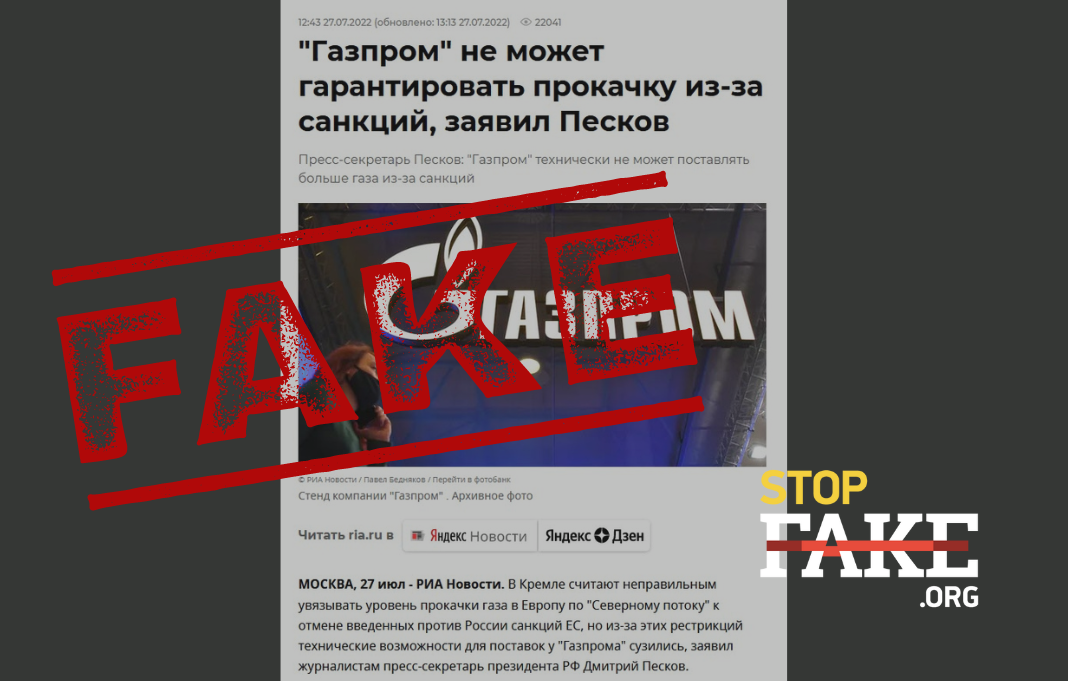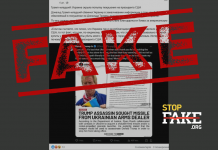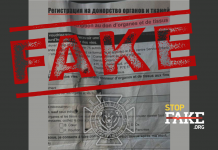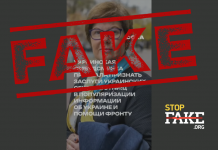Sanctions and Siemens turbine “technical problems” are not an impediment to the normal operation of the Nord Stream 1 gas pipeline. The significant reduction in Russian gas supplies to Europe and Germany in particular, happened for political reasons and not because the turbine hasn’t been repaired, as Russia claims. The Russian Federation continues to use its energy resources as a tool to blackmail EU countries for their support of Ukraine.
Social media networks and Russian news sites are full of stories claiming that Gazprom, the Russian majority state owned energy corporation, can’t guarantee gas deliveries, in particular to Germany, because of western sanctions, which are also impacting on the situation with Siemens Energy turbine that the Nord Stream 1 gas pipeline uses. By blaming the West and accusing it of “unfriendly policies” and “lack of pipeline maintenance”, the Russian Federation is completely absolving itself of any responsibility for reducing gas supplies to Europe.
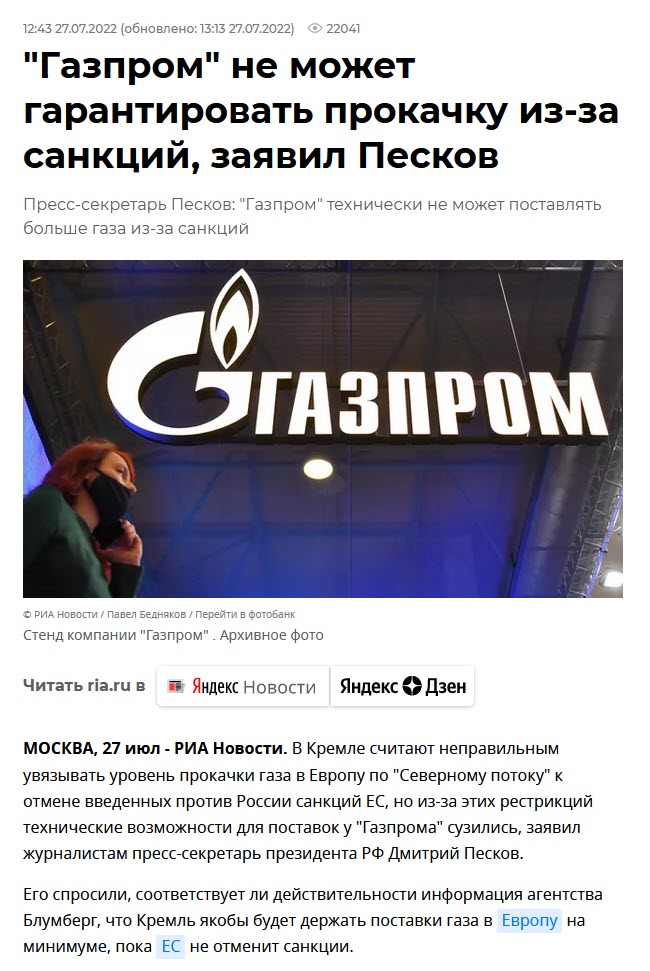
“Gazprom supplies as much gas as necessary and as much as possible. We know that now the technical possibilities for transporting gas have become smaller, they have narrowed. Why? Because the process of technical maintenance of various units is extremely difficult due to those restrictions and sanctions that Europe has imposed,” said Putin’s spokesman Dmitry Peskov.
In fact, EU sanctions are not responsible for a cut in gas supplies to Germany, as the sanctions currently do not enforce a gas embargo and are not affecting the return of Siemens turbines to Russia. Gazprom limited the amount of gas piped to Germany purely for political reasons, and not because the Siemens turbines hadn’t returned from repair. The CEO of Siemens Energy, Joe Kaeser, made this clear in an interview with the German newspaper Süddeutsche Zeitung. Kaeser noted that Russia deliberately wants to involve Siemens in the conflict, and even if the problem truly was the turbine repair, from a technical point of view, this would never justify such a large reduction in gas flow.
Furthermore, after personally inspecting the turbine for Nord Streat 1, German Chancellor Olaf Scholz said there are no technical justifications for reducing the gas volume to Germany.
According to the German fact-checking site Correctiv, in mid-June prior to the start of repairs and the complete shutdown of Nord Stream 1, gas supplies to German were already reduced by up to 40%. One of the reasons was supposedly because the necessary turbine was “stuck” in Canada and could not be returned because of sanctions against Russia. The turbine was serviced by Siemens Energy in Canada. According to Germany, the turbine is not necessary for the gas pipeline to operate normally. A spokeswoman for the Bundesnetzagentur, the Federal Network Agency, Germany’s regulatory office for energy, communications and transport, told Correctiv that the Nord Stream 1 pipeline can transport gas without this turbine.
As early as July 10, Canada also announced that it would provide a sanctions exemption that would allow the Siemens turbine to be shipped back to Russia. However, according to media reports, the turbine is still in Germany, at the Siemens Energy plant in Mülheim an der Ruhr. The turbine was supposed to be shipped to Helsinki on July 25, but Gazprom said that necessary documents for its transportation were not in place. On July 27 Reuters reported that the German authorities provided Siemens Energy with all documents required to export the turbine to Russia. What is missing are customs documents for import to Russia, and those should be provided by Gazprom. The alleged “technical problems” with the Siemens turbine appear to be simply a pretext for Russia to limit gas supplies to Europe.
The European Commission spokesman Eric Mamer also rejected Russian claims that EU sanctions were preventing the delivery of the pipeline turbine. Mamer accused Moscow of using energy supplies as a lever to blackmail Europe over its opposition to the invasion of Ukraine. This has become possible because the European economy, particularly German energy and chemical industries, are heavily dependent on natural gas supplies from Russia.
StopFake continues debunking fakes about Russia’s war against Ukraine in stories such as Fake: UN condemns Ukrainian attacks on Zaporizhzhia Nuclear Power Plant, Fake: NATO confirms Russian not fighting at full strength in Ukraine, Manipulation: Europe refuses to recognize Russia’s war in Ukraine as aggression, declines ‘Special Tribunal’.


